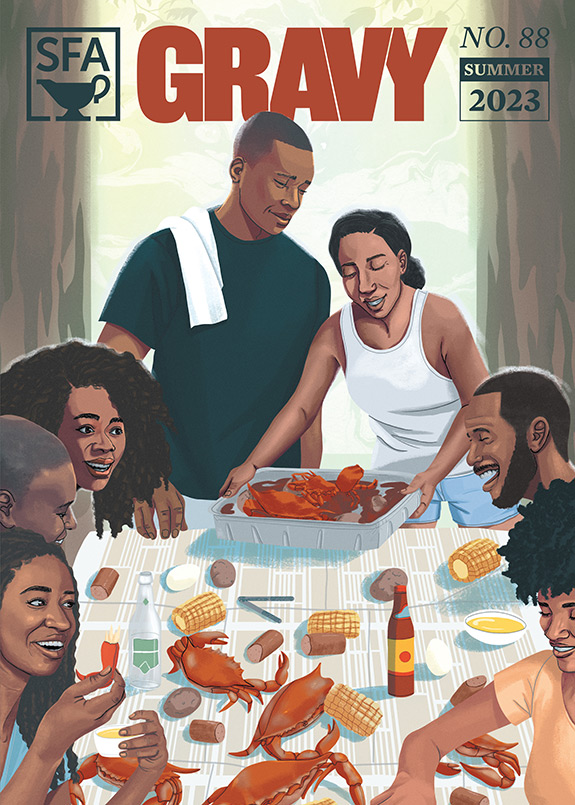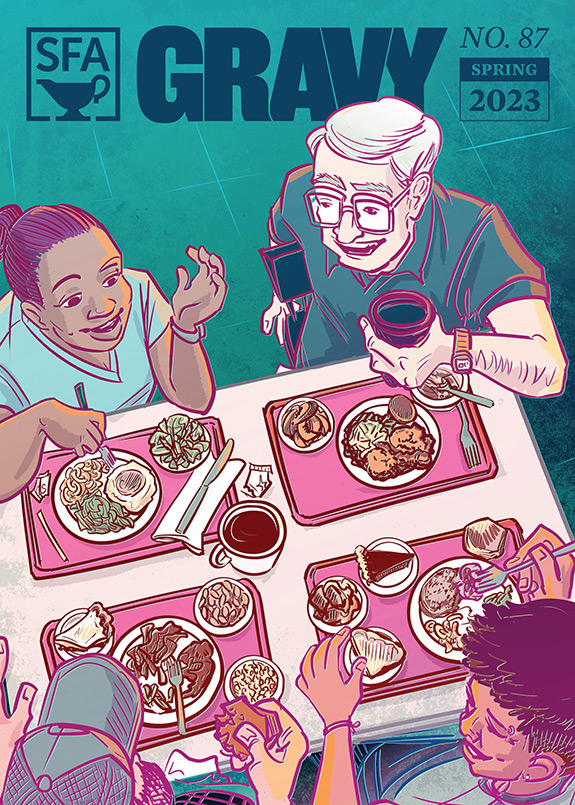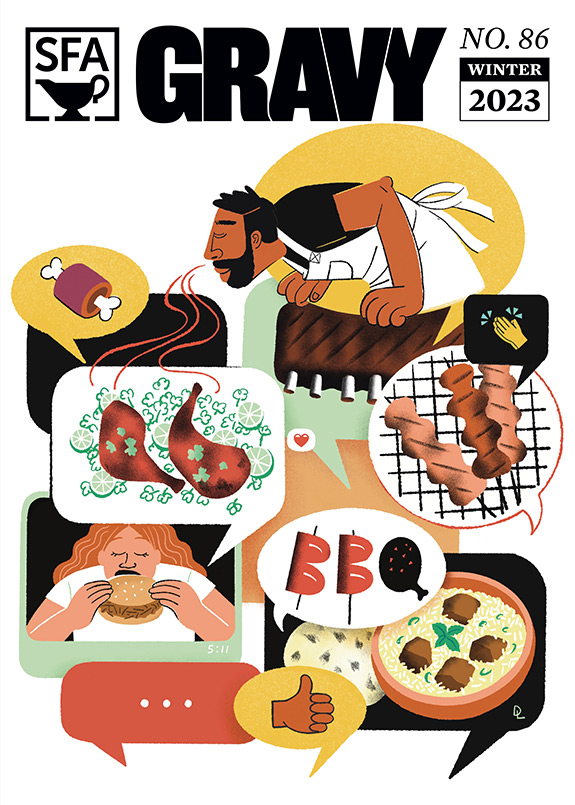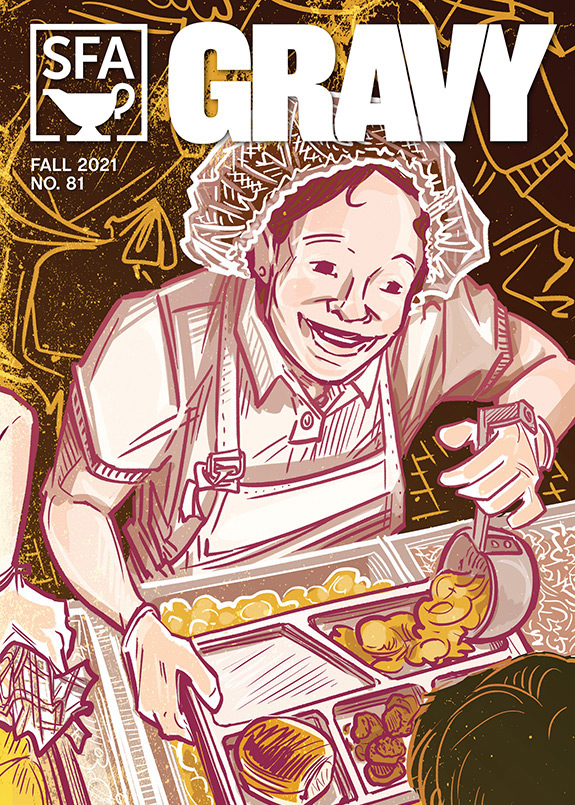Editor’s Note
For this issue of Gravy—my first as deputy editor—I talked to Texan Jason Hernandez, a powerful voice for criminal justice reform. You may have seen him in The New York Times and other publications. After being sentenced to hundreds of years in prison—outrageously harsh punishment—for first-time drug offenses as a 21-year-old, he was released after almost two decades behind bars. He now works with incarcerated people, their families, and allies to teach them how to petition for commutation in a system profoundly weighted against them. I’m proud to know him.
And I know him as an advocate and a cook. He became a contraband cook behind bars in federal prison, in exceedingly difficult circumstances: no stove, no easy access to ingredients, and a lack of autonomy. He takes us through the complicated supply chain, the makeshift cooking methods, and the Doritos tamales that were his signature item.
We’ll share the recipe with the online version of this story.
Jason talked with me about the food he cooked and the relationships he built while locked up: with the older Mexican man who showed him the ropes of cooking while incarcerated, the customers who ordered tamales for the Super Bowl, and the compadres for whom he cooked special meals before they went home after doing time. He was constantly trying to answer this question while locked up: How do you find comfort in an institution whose very aim is to punish and dehumanize you? He found solace, purpose, and a livelihood in providing meals and snacks for the other men on his cellblock.
Jason’s story is just the kind of deep, accessible narrative I like to read, commission, and publish. It takes us inside a bigger social issue via the lens of an individual story. It shows us that many things can be true at once.
Jason tells only a fraction of his story here. He explicitly chose not to dwell on the many harsh realities and losses he experienced and witnessed while locked up. But you see glimpses of the carceral system’s quotidian violence in his references to constant surveillance, segregation, and lack of food choice. You also see the beauty he searched out and cultivated in a space where alienation reigns.
I hope reading Jason’s own words will help you see formerly and currently incarcerated people as just that—people.
I hope this piece will help you recognize that being able to eat well, to cook for yourself, and to determine what you consume are human rights. Or maybe you will just marvel at the ingenuity it took to run a well-oiled prison catering operation in a climate of perpetual contingency and risk that’s like and unlike a restaurant “on the outside.”
Here’s one of my takeaways: I now can’t buy a tasteless winter tomato at the grocery store without thinking about how precious this same vegetable would be in prison (and wondering how many got smushed in someone’s compression socks during smuggling!). If one of the articles in this issue hits you in the gut, sticks in your craw, or comes to mind while you’re browsing your favorite grocery store’s produce section, I’ll consider this issue a job well done.
—Cynthia Greenlee, deputy editor








